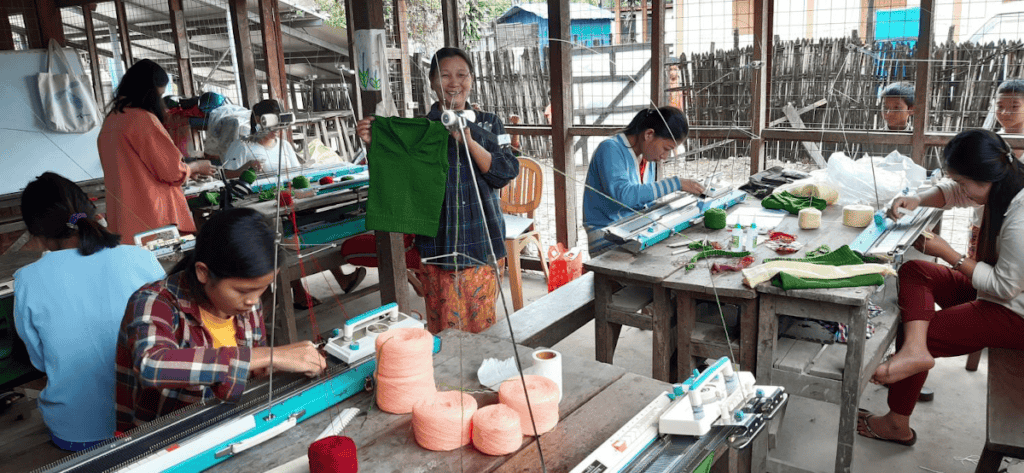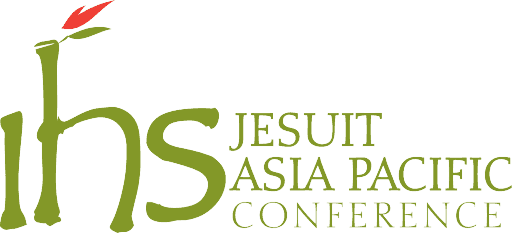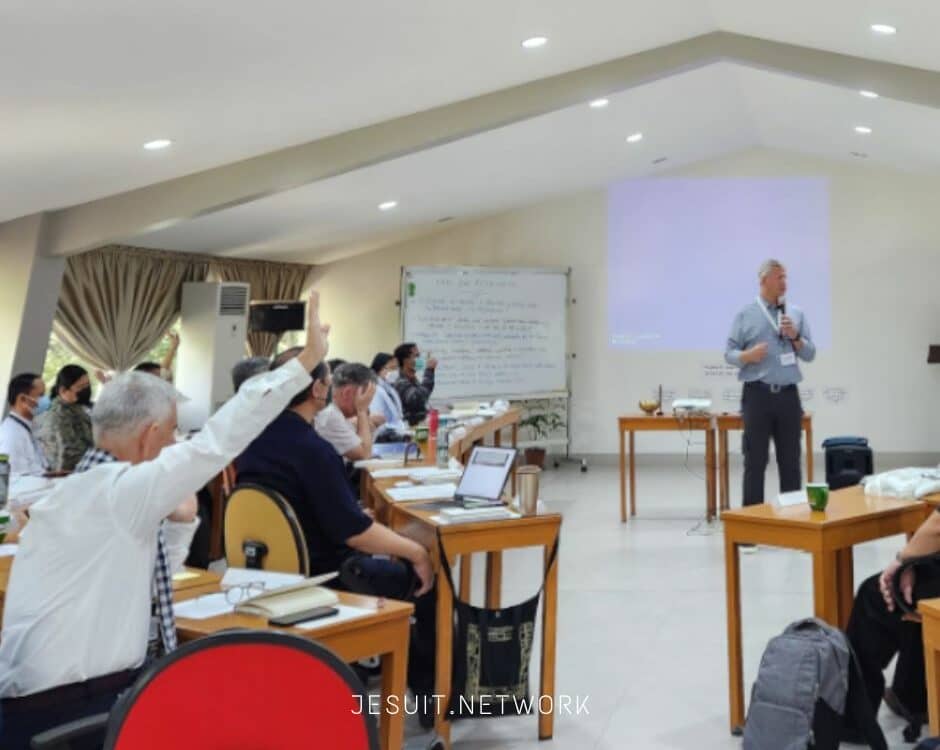This website uses cookies so that we can provide you with the best user experience possible. Cookie information is stored in your browser and performs functions such as recognising you when you return to our website and helping our team to understand which sections of the website you find most interesting and useful.
Challenges and responses to the pandemic in Asia Pacific
In the first months of the pandemic —May 2020— the Social Ministries of the Jesuit Conference of Asia Pacific collected information on Jesuit responses to the COVID-19 pandemic to identify areas of collaboration on the conference and global levels.
Five questions were raised: the initiatives carried out by the provinces/regions, the most vulnerable groups affected by the pandemic, the immediate and mid- and long-term needs of the groups, the challenges encountered, and common concerns that need to be addressed. Answers were gathered through an online survey and a virtual meeting of the social delegates of the provinces/regions, and representatives of Jesuit Refugee Service (JRS) in Asia Pacific.
Some of the findings
The pandemic affected all dimensions of human life, encompassing both the physical and psychosocial-spiritual, such as health, education, socio-economic, political, and mental-spiritual aspects. Many new vulnerable groups and new needs emerged as an offshoot of the pandemic. The coverage of virus transmission and its impact on the population varied from country to country within the conference, but we all faced the common challenge of social distancing and travel restrictions, which hampered us from accompanying and reaching the people in need of our services.
Resources were prioritised according to local needs. Through coordination and communication, those in need of support were able to request assistance from other provinces or from the conference
All provinces and regions were unprepared to respond to this unprecedented human disaster, but we were able to quickly conduct initiatives to respond to the emergency. Some provinces formed a taskforce to coordinate and support the province’s and region’s responses to the pandemic. There were those who implemented interventions on an individual capacity but in close collaboration with Jesuit ministries. In general, the characteristic of our initiatives focused on addressing the immediate needs of the communities.
Since we all faced the same negative impacts of the pandemic, our provinces/regions opted to prioritise their resources on the needs of their own provinces/regions. However, those who needed support were able to ask for assistance from other provinces or the conference.

Predictably, the most vulnerable groups that were identified are those who are already poor and “forgotten” even before the pandemic (such as refugees, undocumented migrant workers, people in prison, the homeless, the elderly…). However, we also identified new vulnerable groups, namely those who have lost their jobs, students who don’t have access to online learning, rural communities that have experienced sudden inflows of people from urban areas to their hometowns, or medical workers and volunteers who are caring for covid-19 patients.
Jesuit initiatives
All Jesuit provinces and regions designed and implemented initiatives to address the needs of the identified vulnerable groups according to their local context and available resources. Since the pandemic impacted all Jesuit work, those in the social ministries carried out their services in close collaboration with other Jesuit ministries and networks outside the Society.
The services that were rendered varied according to the needs, except for the distribution of basic necessities (food and non-food items), which was carried out in all provinces and regions. Jesuits and partners also urged their respective governments and relief providers to give the most vulnerable people access to basic needs and services.
To support health personnel and volunteers in the frontlines, some provinces provided personal protective equipment (medical masks, goggles, gloves, safety helmets, face shields, safety boots….) The Indonesian Province offered some of their buildings to be used by hospitals in need of additional space to treat Covid-19 patients. Besides logistic support, the provinces also provided spiritual services online and, whenever possible, offline. Pastoral visits to internally displaced persons in camps and the sick in hospitals were also conducted following strict health protocols.
The pandemic has changed people’s behaviour towards their health and safety. Jesuit ministries participated in various campaigns in disseminating health protocols. Information, Education, and Communication materials were made, published, and circulated.
These are complex issues and Jesuit social institutions cannot do it alone. Cooperation and networking have never been more needed than now
Planning the way forward
The health and socio-economic impacts of the pandemic have worsened the lives of the poor and marginalised. There is an urgent need for equal access to health services and livelihoods for the poor and marginalised. A post-COVID-19 economic recovery plan that integrates ecology in an inclusive economic development model should be promoted.
Since the pandemic remains far from predictable, it is difficult for social institutions to design medium- and long-term plans. However, there are some things that should be considered.
At the conference level, we need to continue the conversation on what will happen after this crisis is over, with pertinent questions such as: What is the new normal? What good/positive gains have we learnt from this experience, and can we continue to practice them? What mistakes and possible sins of omission have we committed arising from the pandemic? Can we learn to avoid them? We also need to continue monitoring the situation in each province/region and be ready to offer assistance where possible – cooperation and resources-sharing have never been more needed than now.
At the global level, there was a suggestion to advocate for governments to put a moratorium on financial commitments and repayments at various levels of society. Regarding the issue of migrants, it was also proposed to advocate for temporary amnesty for undocumented migrants in receiving countries. These are complex issues and Jesuit social institutions cannot do it alone. We need to collaborate with other institutions and stakeholders, inside as well as outside the Society.
The original article was written by Adrianus Suyadi SJ and was published in “The Jesuits in Asia Pacific 2021.“





